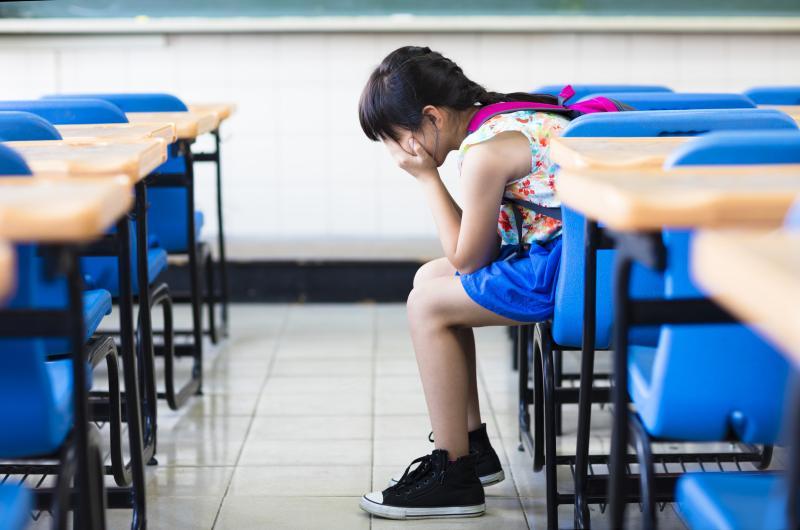 To cultivate an inclusive school culture, autistic children need the acceptance from the others. Photo source: Fotolia
To cultivate an inclusive school culture, autistic children need the acceptance from the others. Photo source: FotoliaSleep deprivation impairs adolescents’ long-term retention of classroom material, according to a recent Singapore study.
“Adolescent sleep is often insufficient during the school week when large amounts of information must be learned,” said researchers. “This study documented poorer retention of factual information for up to 6 weeks when material was learned after successive nights of sleep restriction, reinforcing the message that adequate sleep before learning is important.”
After five consecutive nights of sleep restriction to just 5-hour durations, 29 adolescents (aged 15–18 years) showed significantly worse memory than full-sleep controls when tested 30 minutes (t, 2.54; p=0.14) and 3 days (t, 2.65; p=0.010) after a 6-hour lesson about different species of arthropods. Pretest scores were comparable between groups (t, 0.18; p=0.86). [J Adolesc Health 2019;65:549-557]
In absolute terms, sleep restriction led to 26-percent less retention of learned material when tested 30 minutes after the lecture, and 34-percent less at the 3-day test.
Six weeks after the initial lesson, 14 participants from the sleep restricted group and 22 controls returned for a debriefing session. A third surprise test was administered at this follow-up and showed that those who were sleep restricted had poorer overall memory (t, 3.04; p=0.005) and memory for certain responses (t, 3.22; p=0.003).
At the 42-day follow-up, those who were initially sleep restricted retained 65-percent less material than their control counterparts.
“These findings show that multi-night sleep restriction is detrimental to long-term memory; therefore, improving adolescent sleep may be an effective way to enhance educational outcomes,” said the researchers, noting that delaying school start times may be a potential intervention.
“Importantly, this impairment remained 6 weeks later, although the increased deficit of 65 percent cannot be interpreted as an increase over time because only a subset of participants performed this test,” they added.
Moreover, while the present study was designed specifically to assess the effects of sleep restriction on memory in a naturalistic context, the data generated allowed for hypotheses on underlying mechanisms.
Vigilance and subjective alertness, for example, may offer robust explanation. However, present findings found that while sleep restriction compromised both variables, neither correlated significantly with memory outcomes.
As such, “[t]he poorer performance of the sleep restriction group in the 30-minute test can reasonably be attributed to a deficit during encoding, although it is difficult to separate contributions of encoding mechanisms and those of attention,” said the researchers.
Nevertheless, the researchers also pointed out that interference may have also played a role in the differential memory outcome between the groups. That is, the experiences of the participants in the four extra hours of daily wakefulness may have contributed to their poorer retention. Future studies may focus on this phenomenon.